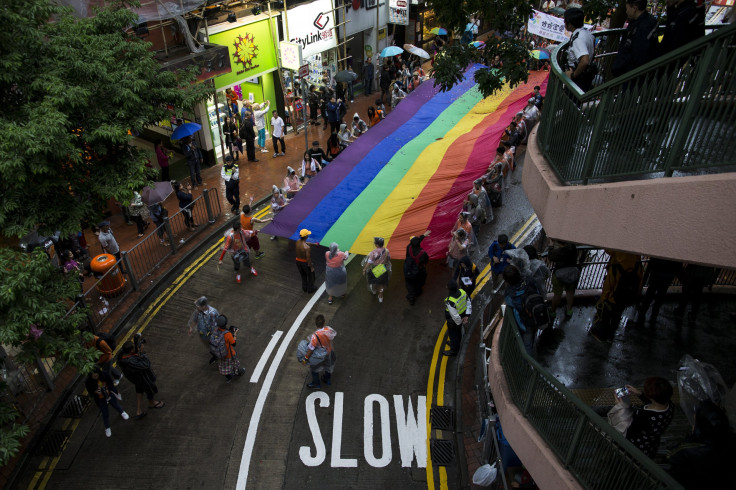Homosexuality In China: Gays Find Government Workplaces Unwelcoming

Even though Chinese public sentiment has become increasingly accepting of homosexuality, gay government employees find that their sexual orientation remains taboo in the workplace. Gay government workers tell the state-run Global Times that coming out in China’s often conservative government offices is still a challenge.
The State Administration of Civil Service reported at the end of 2013 that China had nearly 7.2 million civil servants and more than 31.5 million public-sector workers employed by institutions like schools and hospitals.
“It’s impossible for me to disclose my sexual orientation at the office,” Cheng He, a 25-year-old employee at a government-affiliated research center in Beijing, told the Global Times. “I don’t think it’s necessary, but my colleagues would not accept me being gay anyway.”
Cheng said that while he is ready to come out to his mother and close friends, something is still holding him back from telling his colleagues. He said that while his job offers him stability and respect from his peers, he doesn’t think it would be a supportive environment to come out to -- and Cheng isn’t the only one who thinks so.
A survey from 2014 by the Shanghai-based human rights NGO WorkForLGBT found that in a survey of 8,000 people, only 2 percent of those who worked at state-owned enterprises disclosed their sexual orientation to their employers or co-workers. But at foreign companies, 9 percent of employees polled had revealed their sexuality to their bosses.
Cheng said for the most part government officials are expected to have a spouse (gay marriage is not legally recognized in China) and children to show that they are “normal” and are stable enough to handle their responsibilities. Being discreet about sexual orientation and remaining single is no refuge, he said, since if you’re over 30 and unattached, bosses and colleagues will often try to set up dates.
Chu Ge, a civil servant in the southern city of Shenzhen, said that social progress within government offices will probably remain slow. Chu said employees tend to adopt their bosses' conservative values, particularly when it comes to homosexuality, adding that even news of the U.S. Supreme Court's legalization of same-sex marriage wasn’t widely discussed.
Though the government offices seem to be resistant, other Chinese institutions have made strides toward acceptance. Over the weekend, 22-year-old Wan Qing, a student at Sun Yat-sen University in the southern city of Guangzhou, took a moment on stage at her graduation ceremony to come out as a lesbian. Draped in a rainbow flag, she asked her university’s president to “make a gesture of support for sexual minorities.” In a moment that went viral on social media, college President Luo Jun hugged Wan, smiled and raised his fist in an expression of support.
© Copyright IBTimes 2024. All rights reserved.






















